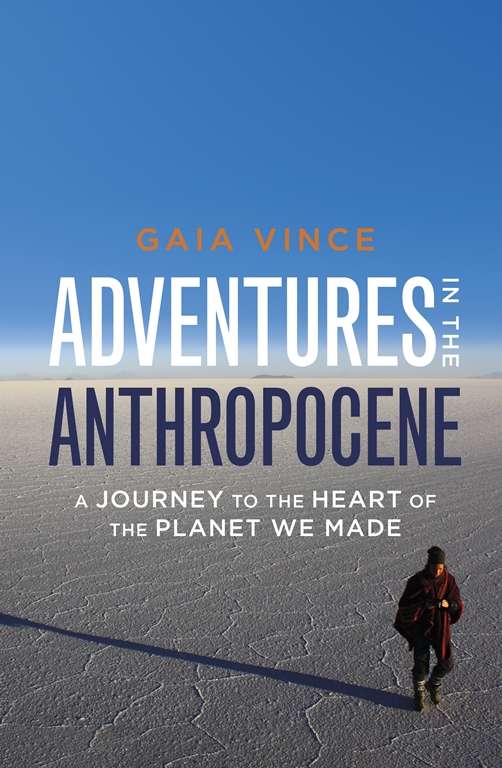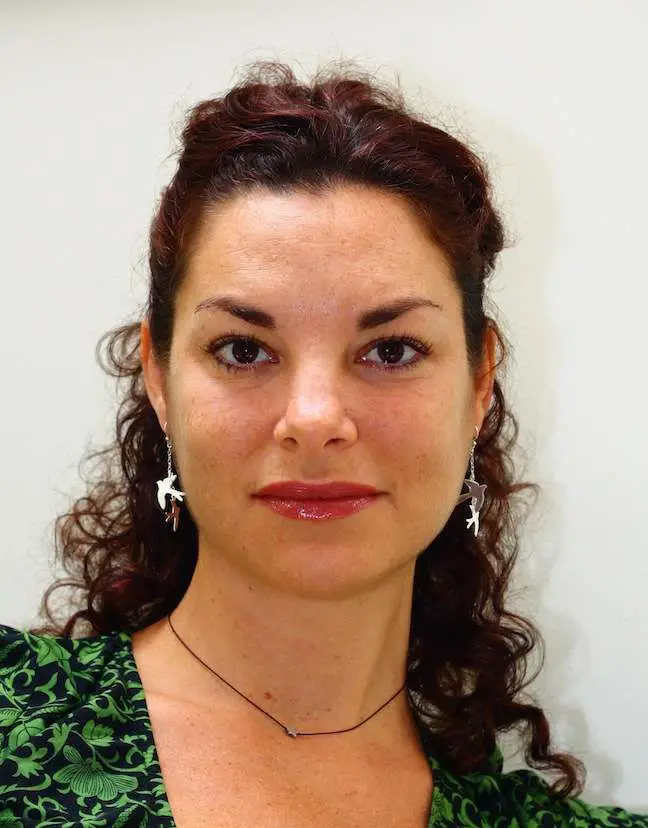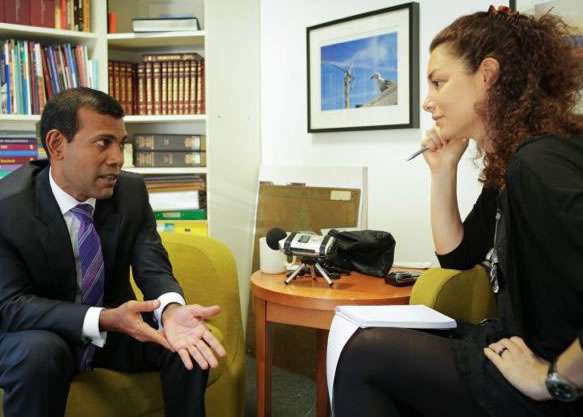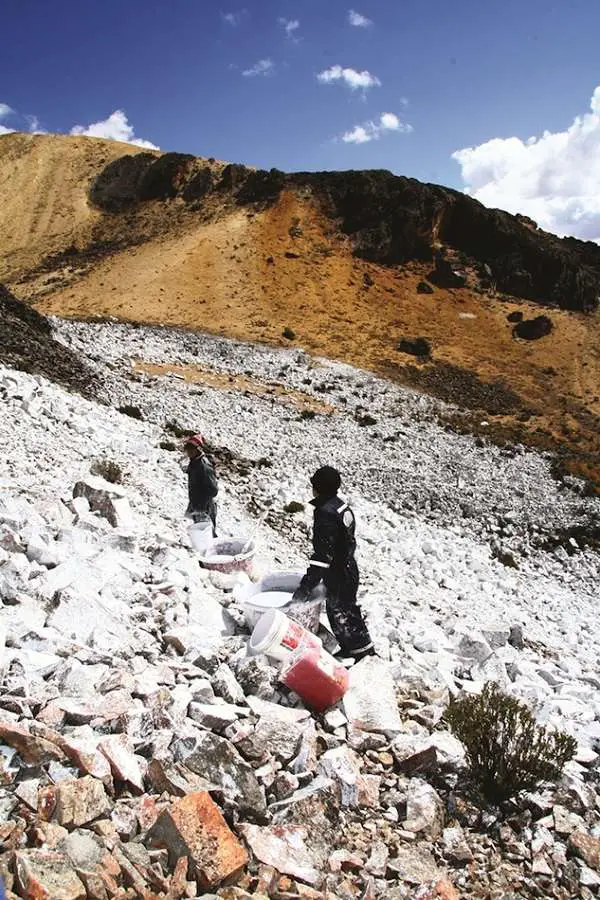Hi there Travel Tarters, today I have an interview with Gaia Vince, who has recently had a new book published from Random House titled ‘Adventures In the Anthropocene – A journey to the heart of the planet we made‘ which is about how humans have altered their environment around them and how some are adapting to this change, often with surprising solutions. I also have an Environmental Scientist background, so I was interested in what she had to say.
Gaia ended up writing this book after an extensive round the world trip.

Gaia is a journalist and broadcaster specialising in science and the environment. She has been the front editor of the journal Nature Climate Change, the news editor of Nature and online editor of New Scientist. Her work has appeared in the Guardian, The Times, Science, Scientific American, Australian Geographic and the Australian. Her website is at WanderingGaia.com and her Twitter handle is @WanderingGaia.
Here it is!
The Travel Talks about the Anthropocene with Gaia Vince

The Travel Tart: Hi Gaia, thanks for the opportunity to chat. For those who have stumbled across this interview in amongst the masses of cat videos and adult sites, can you introduce yourself and what you do?
Gaia Vince: I’m a science writer and broadcaster. I focus on environmental issues, biodiversity and natural history, climate change, human societies, ecology and energy.
The Travel Tart: One thing I do notice about travelling is that the more I learn about other countries, the more I learn about my own. For example, the installation of a sewer pipe in some places is an environmental improvement instead of using a river as a toilet! What inspired you to write ‘ Adventures Into the Anthropocene’? And how did you find that your travels influenced what appeared in the book?
Gaia Vince: I wrote my book after a 2.5 year journey around the world. I was interested in how humans are changing and shaping the planet, so those are the examples from my travels that I included in the book. Humanity’s impact on the Earth is so profound that we’re creating a new geological time period. Geologists have named the age we’re making the Anthropocene.
The Travel Tart: Obviously, there has been exponential population growth over a relatively short period of time on Planet Earth. There’s still the same amount of resources on the planet as there ever was with more people trying to access them. And the term ‘sustainability’ I feel is tossed up so many times that it feels like a marketing buzzword instead of a real concept. My definition of sustainability is by asking this question – ‘can you do this activity forever?’ What’s your view on what sustainability means?
Gaia Vince: I use sustainability to mean lastingness – how well something endures. In terms of the planet’s resources, sustainability means using resources at a rate at which they can be replenished.
The Travel Tart: Here is one scary fact I’ve come across – the explosion of the Chinese middle class. I’ve read figures that this will expand from 300 million people currently (which is the entire United States population) to a staggering 800 million people by 2020. That’s a lot of people wanting to travel the world, which will probably create a lot of impacts in terms of both resources and development to accommodate these crazy numbers. It would be hypocritical of the West to say ‘sorry developing countries, you can’t have our lifestyle because it will stuff up the environment’ considering that the West has already used up a disproportionate amount of the world’s resources. How the hell is the world going to manage this?
Gaia Vince: All nations, whether poor and rich, will have to find a way for people to live with enough food, water and other resources, while limiting the dangerous impact we are having on the planet.

The Travel Tart: To me, it seems that investing in innovative technology is the way out. But many countries seem to be dragging the chain in terms of supporting innovation. It feels like politics first, science comes second. What’s the best way to have all of the world’s nations focus towards a goal of global sustainability?
Gaia Vince: It is happening slowly, every environmental crisis helps push the political agenda.
The Travel Tart: On your travels, you’ve come across a lot of ingenious ways that people are adapting to new environments, such as the retired Nepali railway worker who is creating artificial glaciers to irrigate his village (as used to happen naturally), Peruvians painting mountains white to lower temperatures and keep the snow from melting too early in the season and the man making an island out of rubbish in the Caribbean, to try and counter land lost to rising water. What’s the most bizarre thing you’ve come across in your travels in terms of a unique adaptation to the environment?
Gaia Vince: Probably painting the mountain white in Peru. White reflects heat and the sun’s rays much better than black or dark materials. Once ice has gone, it’s very hard for it to form, because underneath you have the black rock and black is nice and hot to the touch, especially when the sun’s shining on it. So the idea is that by painting the mountain white, they’re creating an artificial glacier; it’s not ice, but it’s very reflective, so that any precipitation that falls during the night, if it freezes there, gets a chance to stay and build up. They’re hoping to recreate the icy glacier conditions that way.

The Travel Tart: One disturbing but true quote I heard from someone I met travelling was ‘there is no first world without the third world‘. It’s like the West has been geared into a consumer society that devours goods produced at low cost in sweatshops elsewhere. The Earth can only sustain 1.5 billion people who live like Americans or Australians. Pretty scary. It can be hard to get this message across in a world full of fake. How do we get more people to understand science better?
Gaia Vince: The price of an item needs to more accurately reflect its environmental and human production cost. And we need to introduce a closed-loop economy in which items and the energy used to produce them are properly recycled.
The Travel Tart: And finally, where was the first place where you discovered that you really loved travelling?
Gaia Vince: India!
The Travel Tart: Thanks for your time Gaia, and talk soon. Good luck with the book!
One thing I’ve noticed again and again is that if they have access to basics like clean water and arable soil, villages can be self-sustaining. John Perkins’ concept of a “life economy” versus the “death economy” we now live in makes the most sense to me.
Yes, true – you don’t need much to become sustainable!